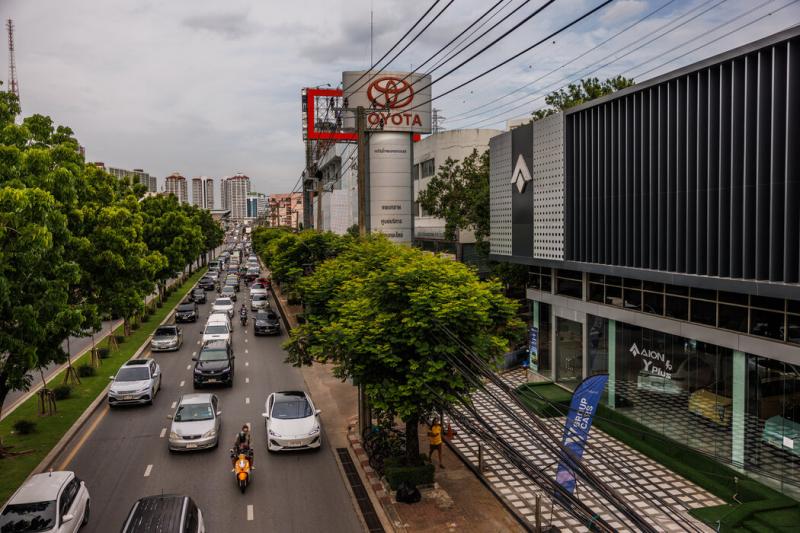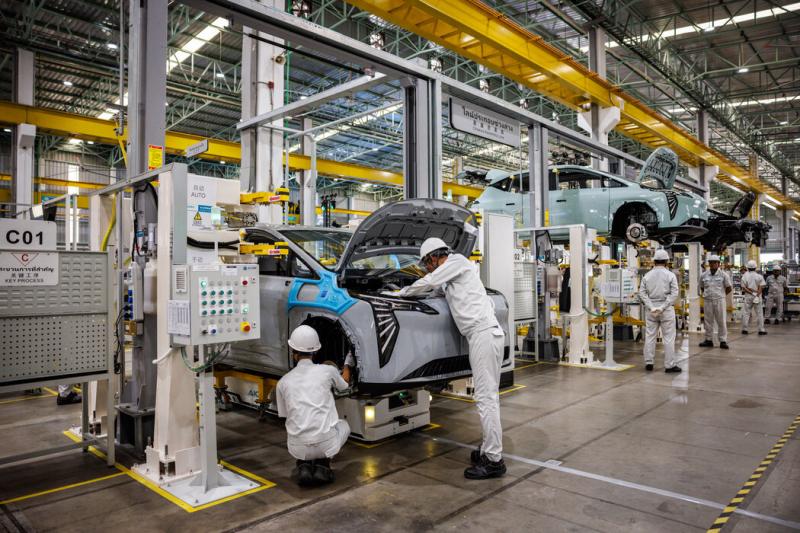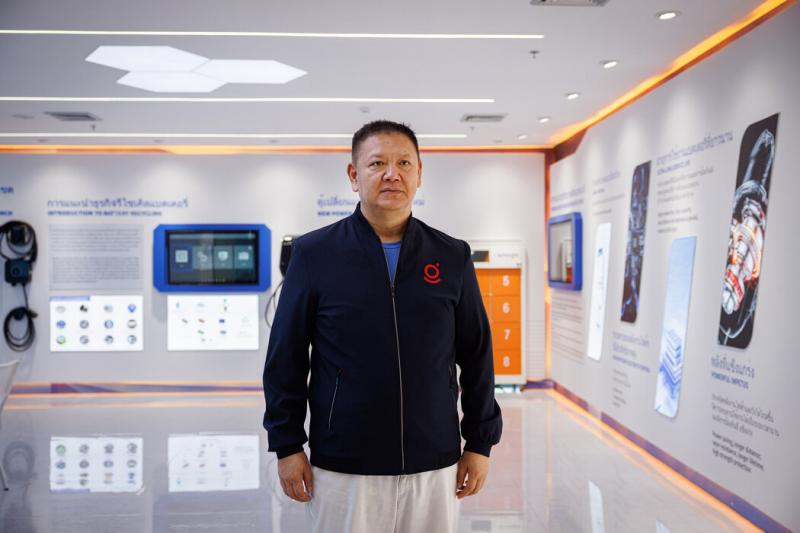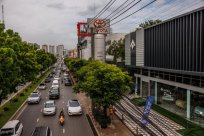
Japanese companies have established Thailand's automotive industry almost from scratch, and history can be traced back to the few years after World War II.By the end of the 1970s, Japanese brands accounted for about 90%of Thai car sales.They have invested in Thailand to build a supply chain, and the products have also been widely recognized by consumers.
In the 1990s, auto manufacturers in the United States and South Korea also targeted the Thai market, but almost did not affect the market share of Japan.
Now, the fortress of Japanese cars is finally broken by Chinese manufacturers, and the latter provides what they don't have: affordable electric vehicles.In the past two years, a large number of Chinese brands such as BYD, Great Wall Motors and SAIC Group have influated, and the alarm clocks were knocked on Japanese cars.
In December last year, Thai Prime Minister Seta His prestige visited Japan and conveyed a message to Japanese companies: quickly acting and investing in electric vehicles, otherwise he would lose to China.
"Your situation is not unique," his prestige warned Japanese car companies in an interview with Japanese media.
Electric vehicles are very popular in the Thai market, and Japanese car companies are unwilling to fully accept this car, which hinders their development there.Mazda, Mitsubishi, Nissan, Suzuki, and Gibing are particularly heavy, partly because their plug -in hybrids or full electric models are limited.According to data from the car information provider MarkLines, last year, the sales of these companies in Thailand fell by 25%, and the overall sales fell by 9%.

Honda announced this month that one of the two factories in Thailand will be discontinued next year.Suzuki said in June that it will close the only car manufacturer in Thailand.
Japanese auto manufacturers account for about 75%of Thailand's market share, and they are taking measures to prevent the erosion of its status.During his prestige visit to Japan, Toyota, Honda, Hitzaku, and Mitsubishi said that they would invest $ 4.3 billion in five years to transform their factories in Thailand into factories that produce electric vehicles.At the end of last year, Honda began to produce electric vehicles in Thailand.
In 1962, Nissan established the first Japanese car assembly factory in Thailand in Bangkok. At that time, Thais bought only thousands of cars each year.Toyota followed and started production in Thailand in 1964.
From the beginning, Japanese companies regarded Thailand as a regional export center in Southeast Asia.They spent decades to invest in the supply chain and sales network in Thailand, mainly used for the sales of pickups in the Thai market and other markets.Japan's strategy was rewarded in the 1980s and 1990s. At that time, Japanese auto manufacturers made a profit from the booming demand of Southeast Asia. The United States and Germany mainly focused on the Eastern European market at that time.
Southeast Asia, including Thailand, is the largest market for Mitsubishi and other small Japanese auto manufacturers.In the fiscal year as of March this year, Mitsubishi Motor's sales in the region decreased by 9%year -on -year.
Mitsubishi and other Japanese cars are hoping to develop new hybrid and electric models to recover the lost land.In February this year, Mitsubishi launched a hybrid version of XPANDER multi -purpose models in Thailand, which said the company said that the order exceeded expectations.
But China Electric Motor Corporation is a powerful competitor.
GAC Ean is a state -owned electric car company under the State GAC Group. The company has quickly established a manufacturing and sales business in Thailand and is trying to enter another site of Japanese cars: taxis.Toyota occupied the vast majority of taxis on Thai roads.

GAC Ean released a full electric car specifically for Thailand's online car entry and taxi market through its Thai partner Jinhui.
In the past year, Ean cooperated with Jinhui to sell thousands of taxi models to Thailand commercial customers, with a price of about 25,000 US dollars and provided nine -year warranty.
Jinhui also invested 15 exhibition halls for Ean. Huang Yongjie, chairman of the company, said that Toyota's response to Ean's entry into the Thai market was to reduce the price of its main taxi model by nearly $ 3,000.Huang Yongjie said that this is a noteworthy move because "Toyota never reduces prices."




